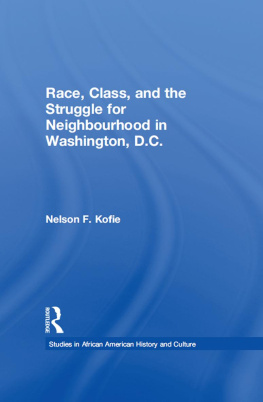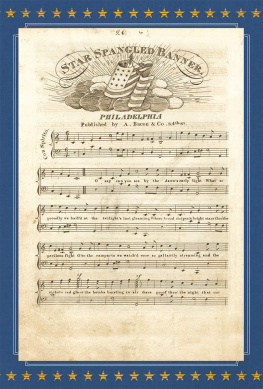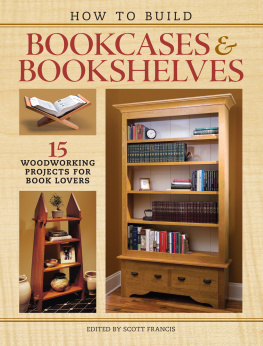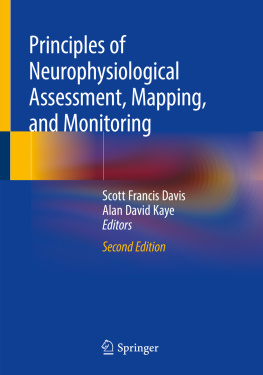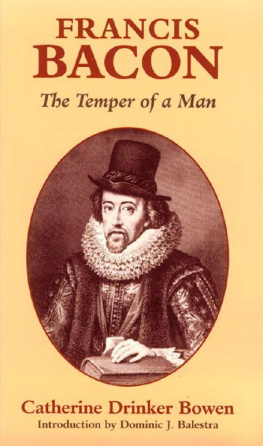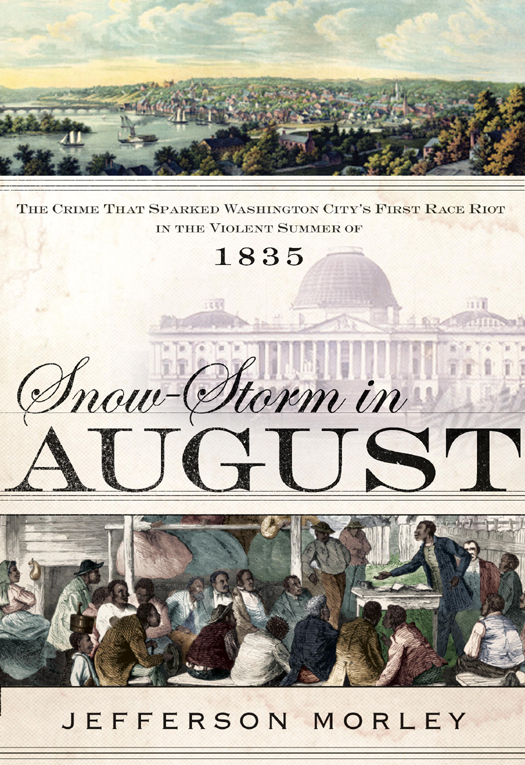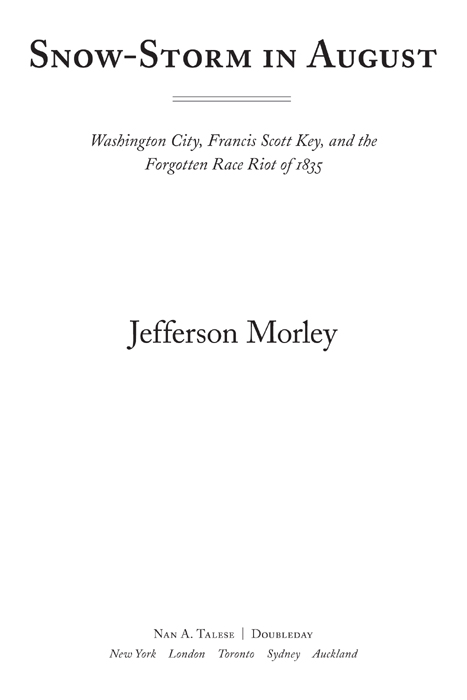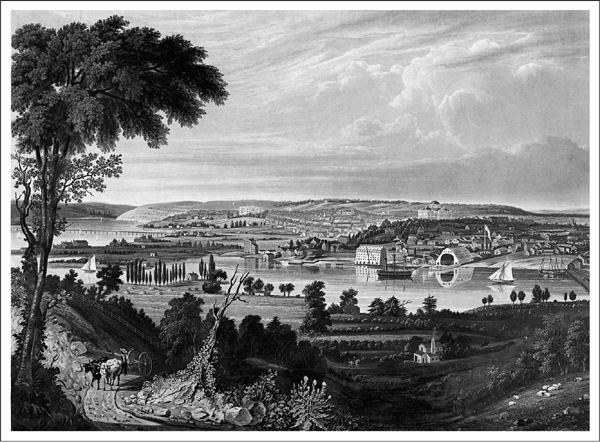
Washington City in 1834, as seen from the south.

Copyright 2012 by Jefferson Morley
All rights reserved. Published in the United States by Nan A. Talese/Doubleday, a division of Random House, Inc., New York, and in Canada by Random House of Canada Limited, Toronto.
www.nanatalese.com
DOUBLEDAY is a registered trademark of Random House, Inc. Nan A. Talese and the colophon are trademarks of Random House, Inc.
constitute an extension of this copyright page.
Book design by Michael Collica
Cover design by Michael J. Windsor
Cover photographs: Landscape Historic Map Works LLC / Getty Images; People After William Ludlow Sheppard / The Bridgeman Art Library / Getty Images; Capitol Building Everett Collection / Superstock
Library of Congress Cataloging-in-Publication Data
Morley, Jefferson.
Snow-storm in August : Washington City, Francis Scott Key, and the forgotten race riot of 1835 / Jefferson Morley.1st ed.
p. cm.
Includes bibliographical references and index.
1. Washington (D.C.)Race relationsHistory19th century. 2. Race riotsWashington (D.C.)History19th century. 3. Free African AmericansWashington (D.C.)History19th century. 4. SlaveryWashington (D.C.)History19th century. 5. Trials (Attempted murder)Washington (D.C.) 6. Key, Francis Scott, 17791843. 7. Bowen, Arthur, b. 1816? 8. Thornton, Anna Maria Brodeau, 1775?1865. 9. Washington (D.C.)History19th century. I. Title.
F198.M67 2012
305.8009753dc23
2011042032
eISBN: 978-0-385-53338-6
v3.1_r1
For my mother and father,
Jane Augustine and Tony Morley
We rejoice that we are thrown into a revolution where the contest is not for landed territory but for freedom. Let no man remove from his native country, for our principles are drawn from the book of divine revelation, and are incorporated in the Declaration of Independence, that all men are born equal.
Declaration of the Fifth National Negro Convention, Philadelphia, 1835
The Star-Spangled Banner
F RANCIS S COTT K EY
O say, can you see, by the dawns early light,
What so proudly we haild at the twilights last gleaming?
Whose broad stripes & bright stars, through the perilous fight,
Oer the ramparts we watchd, were so gallantly streaming?
And the rockets red glare, the bombs bursting in air,
Gave proof through the night that our flag was still there.
O say, does that star-spangled banner yet wave
Oer the land of the free & the home of the brave?
On the shore dimly seen through the mists of the deep,
Where the foes haughty host in dread silence reposes,
What is that which the breeze, oer the towering steep,
As it fitfully blows, half conceals, half discloses?
Now it catches the gleam of the mornings first beam,
In full glory reflected, now shines on the stream
Tis the star-spangled banner: O, long may it wave
Oer the land of the free & the home of the brave!
And where is that band who so vauntingly swore
That the havoc of war & the battles confusion
A home & a Country should leave us no more?
Their blood has washed out their foul footsteps pollution.
No refuge could save the hireling & slave
From the terror of flight or the gloom of the grave:
And the star-spangled banner in triumph doth wave
Oer the land of the free & the home of the brave.
O thus be it ever when freemen shall stand,
Between their lovd home & the wars desolation!
Blest with victry & peace, may the heavn-rescued land
Praise the Power that hath made & preserved us a nation!
Then conquer we must, when our cause, it is just,
And this be our mottoIn God is our Trust
And the star-spangled banner in triumph shall wave
Oer the land of the free & the home of the brave!
Contents
Authors Note
All the people described in this story were real living persons.
All events occurred as documented and described by contemporaneous sources and eyewitnesses. Nothing has been made up.
All dialogue denoted by quotation marks comes from contemporaneous accounts. In some cases, identified in the Notes, this language has been edited for clarity. No dialogue in quotes has been invented.
P ART I
T HE D ISCIPLE OF E PICURUS
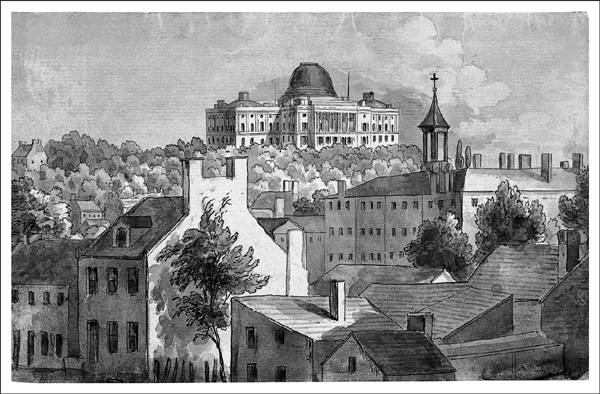
A view of Washington City in the 1830s looking east toward the Capitol.
1
B EVERLY S NOW DID not look like trouble, not hardly. He was a mild-mannered fellow of mixed-race heritagein the lingo of the day, a mulatto. The admixture of African and European blood in his veins gave an air of incongruous humor to his countenance. His language was learned, if a little extravagant, for he knew his way around a kitchen and loved to pass cooking time in conversation. To the patrons, white and colored alike, who gathered at his oyster house in the tobacco town of Lynchburg, Virginia, Beverly held forth more as a Creole raconteur than discontented bondsman. In the autumn of 1829, he was certainly better known for his way with words and white men than for any sort of difficulty. He humored the hungry with a steady stream of jokes and japes while doling out fat James River oysters and dispensing a variety of sage epigrams, dubious puns, and enigmatic epiphanies at no extra charge. The fare was salubrious, the conversation light, the prices lighter. That was Beverlys way.
While it was true that not all white men approved of a colored man doing business in the heart of town, it was more true that Beverlys friends, John and Susannah Warwick, approved of his enterprise. In Lynchburg that was enough. John was the son of Major William Warwick, a Revolutionary War veteran turned banker who had served as the first mayor of the settlement around John Lynchs ferry landing back in 1805. Susannah was the daughter of Captain William Norvell, a veteran of Valley Forge and the villages first clerk. John and Susannah Warwick owned Beverly Snow, but ownership hardly described Susannahs relationship to him. Beverly was also her friend, almost a big brother.
Beverly had lived for at least a few years in Captain Norvells mansion on Federal Hill, the most distinguished enclave in the growing town. Nothing is known of Beverlys parents other than that one of them, probably his father, was white. Unusually for an enslaved person, Beverly learned to read and write at an early age, perhaps because Captain Norvell had helped establish the first public school in Lynchburg. Along the way, Beverly might have glimpsed one of the great men of the day, former president Thomas Jefferson, who sold a plot of land to William Norvell in 1812. Legend has it that Jefferson visited their house. Beverly, as a servant and cook, might have prepared his meals, perhaps even overheard his conversation. The servant and the statesman would come to share at least one pastime. Jefferson often digressed on his admiration for Epicurus, the ancient Greek philosopher who espoused a creed of pleasurable moderation in the third century before Christ. Before long, Beverly Snow would do the same.


